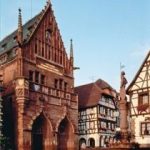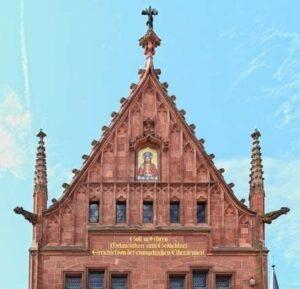Humanist and Reformer
Philipp Melanchthon was 62 when Lucas Cranach the Younger painted this portrait in 1559. Melanchthon looks rather resigned. The humanist and reformer had always striven for unity and harmony but he had often been disappointed.
When he was young, Europe seemed to be finding its political, cultural and church unity once again. Emperor Charles V united large parts of Europe under his rule. The humanists formed a network across political borders.
However, things did not turn out as Melanchthon had hoped. The war between France and Charles V tore Europe apart. The Turks moved further and further westward. The Reformation gave rise to a number of churches. Peoples, cultures and churches were divided by new borders. Europe was falling apart. It seemed as though unity could now only be achieved by force and the sword.
Despite these disappointments Melanchthon did not give up. He was convinced that Europe would be able to overcome its divisions peacefully if it returned to its sources in antiquity and Christianity. Unity would be possible again through humanist education and church reform . Europe needed Cicero and Christ, Humanism and the Reformation, education and faith.





